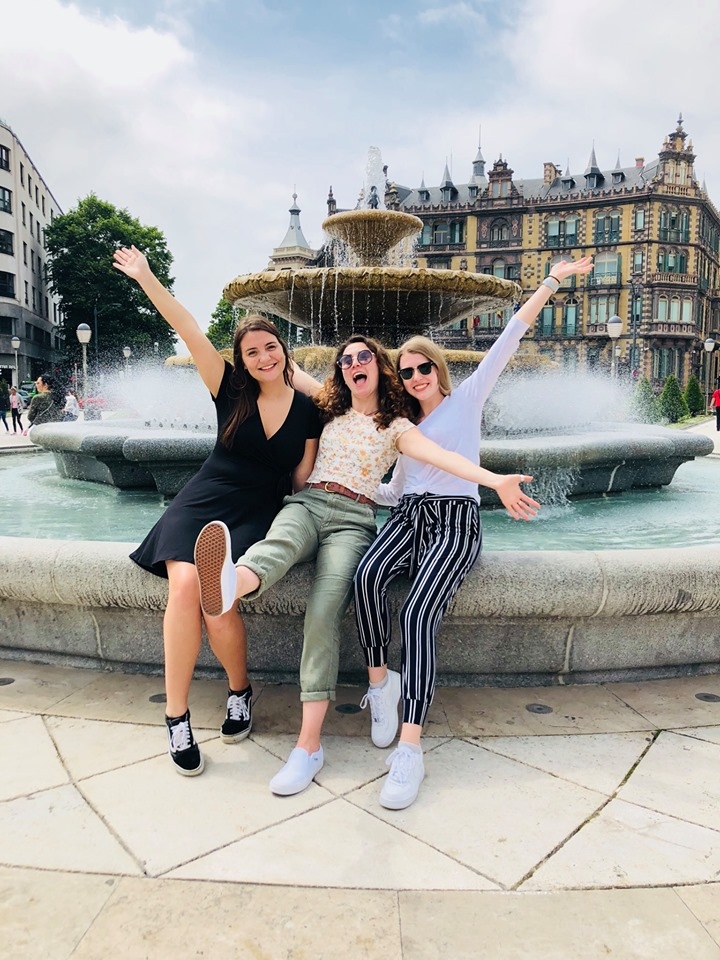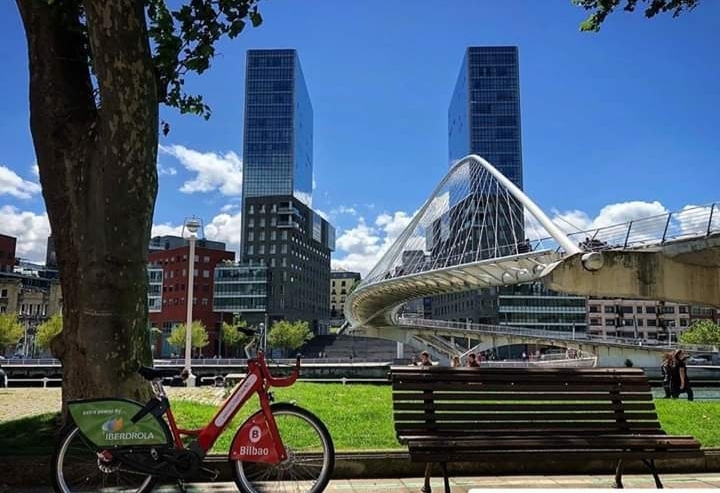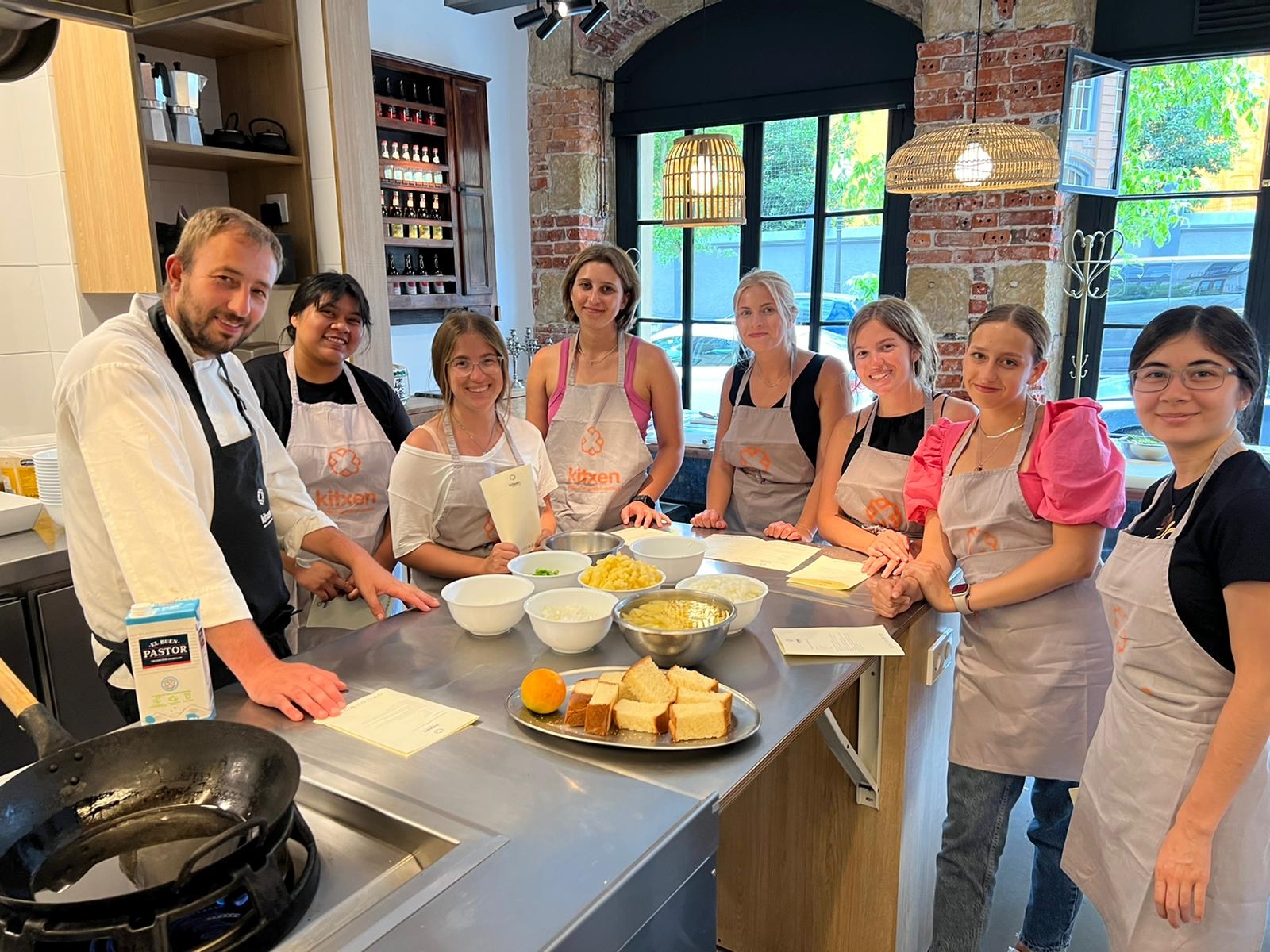Program highlights for Bilbao / Getxo, Spain
Language spoken:
Spanish, Basque
Currency:
Euro (EUR, €)
Climate:
Mediterranean
City type:
Large City (Population 500,000-200,001)
Program type:
Specialty
Host university:
University of the Basque Country
Language of instruction
English, Spanish
Terms offered:
Spring, Summer, Fall, Yearlong
Program capacity:
Summer: 50 students
Semester: 65 students
Credit type:
U.S. semester credit
Summer 2026:
Session 1 or 1&2: March 15
Session 2: April 15
Fall/Yearlong 2026-27:
April 1
Spring 2027:
September 15, 2027
Eligibility:
Minimum GPA: 2.5
Scholarships and Financial Aid:
Deadlines vary
- Live in a dynamic, cosmopolitan city on Spain’s northern coast, one hour from the border with France and with connections to major European cities.
- Study International Business, which may be taken separately or in conjunction with language studies.
- Enjoy many opportunities for inexpensive outdoor activities such as surfing, horseback riding, hiking, and cycling.
- Intern in management consulting firms, publishing companies, NGOs, the Guggenheim Museum, and more.
- Explore local museums, art galleries, and music halls, or enjoy take a stroll through town and enjoy world-renowned architecture.
- Learn all about Basque culture, society, and cuisine.
- Join our teaching assistantship program to gain work experience at local schools while earning money.
- The USAC Resident Director and staff are present on-site full-time to welcome and support you during your term abroad.
Why Study In Bilbao / Getxo?


 Study in Bilbao to live and learn about international business, Spanish language, and culture in a modern, cutting edge city—a banking and service center with world class museums and art galleries, gleaming metros, futuristic music halls, and a modern airport. Located in northern Spain near the French border; Bilbao and Getxo (where most housing is located) are situated in beautiful green mountains that face the ocean, making it possible to hike in the morning and go swimming in the afternoon.
Study in Bilbao to live and learn about international business, Spanish language, and culture in a modern, cutting edge city—a banking and service center with world class museums and art galleries, gleaming metros, futuristic music halls, and a modern airport. Located in northern Spain near the French border; Bilbao and Getxo (where most housing is located) are situated in beautiful green mountains that face the ocean, making it possible to hike in the morning and go swimming in the afternoon.
Study for a semester or year and choose courses in intensive language, business, and cultural studies. An intensive language approach allows you to complete one to three courses (4-11 credits) of university foreign language in only one semester, depending on your curricular focus. Combine what you learn in the classroom with internships, field trips, optional tours and field studies, cultural events, and village festivals. Experience the society and culture of the Basque Country through personal interaction with local students and in the community. A local university student will be available to become your conversation partner, which is an excellent way to make friends and become integrated into the community.
Bilbao is the largest city in the Basque Country and was recently recognized by the Eurostat report as one of the top three safest areas in the EU, and was awarded the first “Nobel Prize for Cities”—the Lee Kuan Yew World City Prize—for its excellent sustainability, vibrancy, and livability. An extremely walkable city with an efficient and safe transportation system, Bilbao has many pedestrian areas, including the old quarter with shops, restaurants, and coffee houses.
Getxo is a charming, coastal community popular for its beaches and diverse cultural and outdoor activities—it is not touristy, maximizing the opportunity for students to meet local peers.
Both Bilbao and Getxo offer a variety of cultural events, museums, and sports such as surfing, rowing, soccer, hiking, bicycling, and more. The area is known for its culinary traditions and Basque cuisine is internationally recognized.
Bilbao is home to some of the world’s most renowned architecture: Frank Gehry’s Guggenheim Museum, the Euskalduna Music Hall and Convention Centre, Norman Foster’s Underground, Calatrava’s Bilbao airport, Urdaibai's Natural Reserve area, San Mamés Stadium, and other projects by architects such as Arata Isozaki and Cesar Pelli. Bilbao has stood as a standard example of successful urban renewal since the opening of the Guggenheim ushered in an era of international tourism, a revitalized cultural sector, and renewal of the city’s economy.

